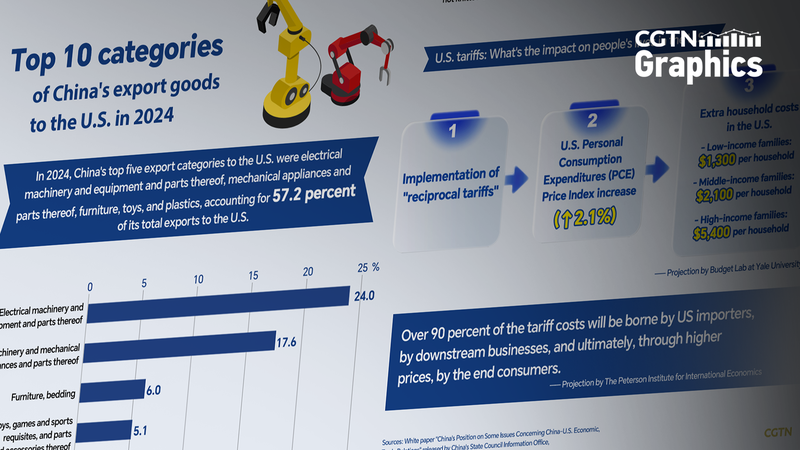A newly released white paper by the Chinese government warns that Trump's "reciprocal" tariffs are distorting the allocation of global market resources and undermining the foundations of global cooperation. According to the report, these tariffs are not only impacting long-term economic growth around the world, but also reshaping market dynamics in unexpected ways.
Data extracted by CGTN from the white paper highlights that the disruptions may challenge the steady progress of global trade. Meanwhile, analysis from the Peterson Institute for International Economics reveals that over 90% of the tariff costs will eventually be shouldered by U.S. importers and downstream businesses, with higher prices passed on to end consumers. This finding underscores the ripple effect of protectionist measures across the supply chain.
Such insights invite global citizens, business leaders, and tech enthusiasts alike to reflect on how interconnected trade policies can influence markets far beyond their place of origin. As the international community keeps a watchful eye on these developments, the discussion continues on finding a balance that fosters both national interests and global economic stability.
Reference(s):
Graphics: What is the impact of Trump's "reciprocal" tariffs?
cgtn.com




